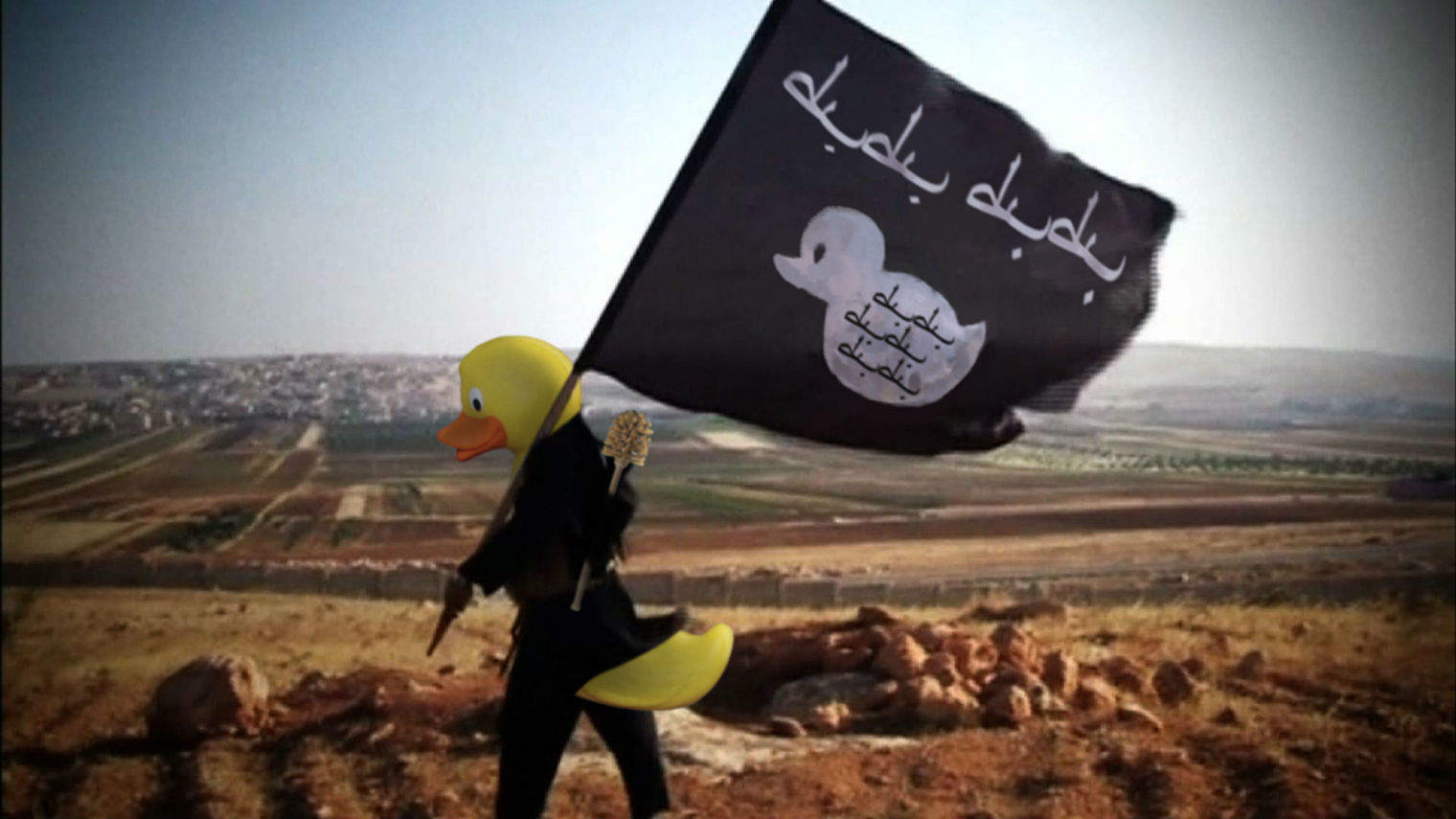
*/
There are a fair few misconceptions surrounding hacker collective Anonymous’s “war” on Isis. It was officially declared after the Paris attacks in a video message, but as Abby Ohlheiser pointed out in the Washington Post, an Anonymous-affiliated operation using the hashtag #OPISIS had been underway since the Charlie Hebdo attacks in January.
The other issue is that, as far as we know, Anonymous has so far done little except report Twitter accounts belonging to suspected Isis groups of individuals, and partly seems to have declared “war” as a kind of branding exercise. Today, they’re taking their previous tactics a step further – by, er, trolling the terrorist group. This Friday has been declared “Isis Trolling Day” by the Anonymous twitter account @YourAnonNews.
Essentially, @YourAnonNews wants Twitter users to spread memes which make Isis look stupid, using the hashtag “#Daeshbags”, a pun on the David Cameron-approved Arabic acronym for Islamic State. The idea seems to have spread from 4chan, an online anonymous forum, where users have been creating memes about Isis since the Paris attacks. Many feature Isis members wearing rubber duck heads, a trope which is cropping up today under the #Daeshbags hashtag:

This 4chan screenshot claims to show the origins of the meme, which seems to basically rely on the idea that “rubber ducks make people look stupid”:

The use of “castrate” also hints at how humour can undermine the terrorist group: Isis’s appeal and its imagery is hyper-masculine, from its use of military clothing to constant acts of violence. But to butcher the saying, men’s greatest fear is that they’ll be laughed at. So perhaps fighting Isis using internet humour spawned by an army of geeks isn’t as pointless as it seems.
The duck meme stands out because it’s ridiculous without straying into Islamophobia and crude stereotypes. Other memes shared on the hashtag centre on the group’s supposed paedophilia and sexual interest in goats; some mock Isis members’ wives or the fact that most Muslims don’t drink alcohol. These make the hashtag look less like a clever online campaign, and more like hate speech: Isis, surely, should be targeted for its violent agenda, not on the basis of religion or culture.
The best of the memes (and most, but not all, of those repromoted by @YourAnonNews) use standard internet humour to undermine Isis propaganda images:


Let’s hope the campaign doesn’t just become another excuse for veiled Islamophobia. Otherwise, it could end up helping Isis, not hindering them.





